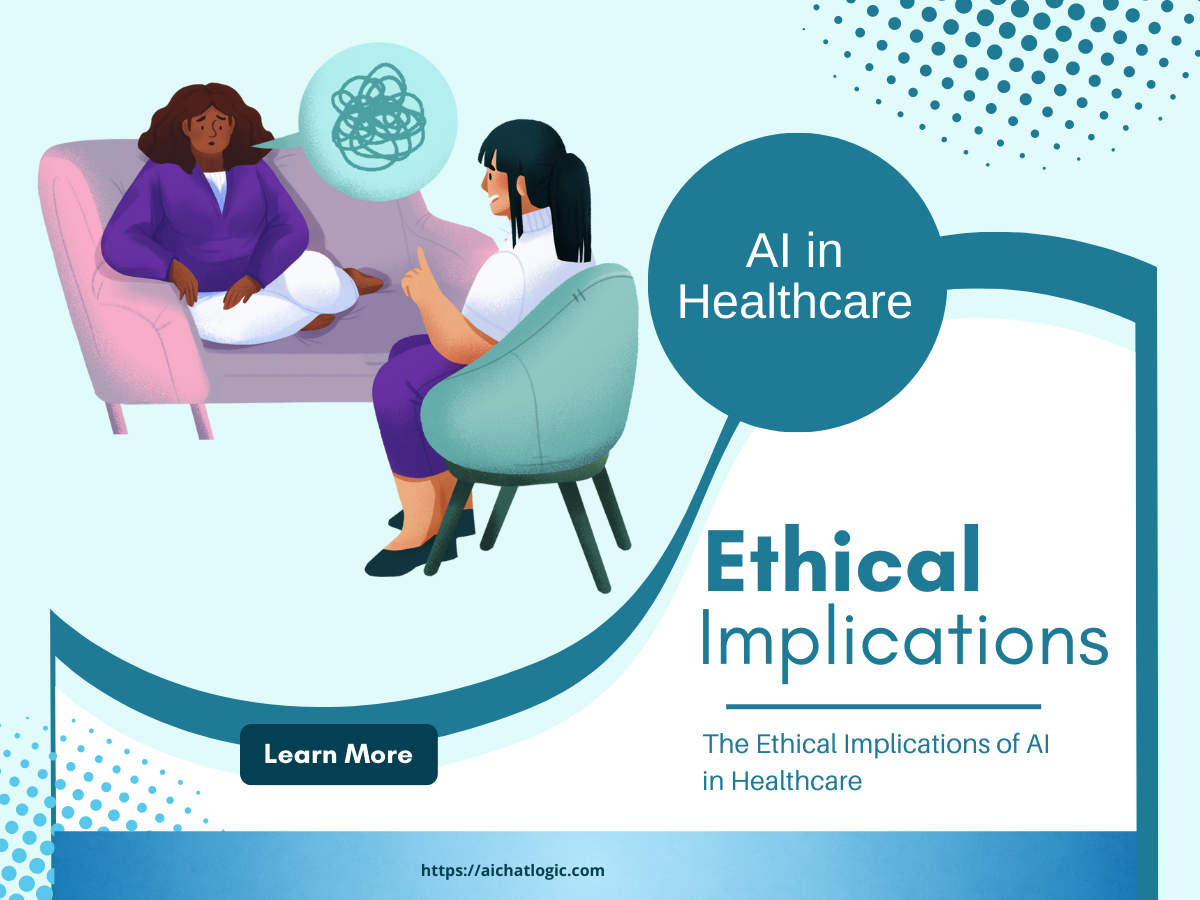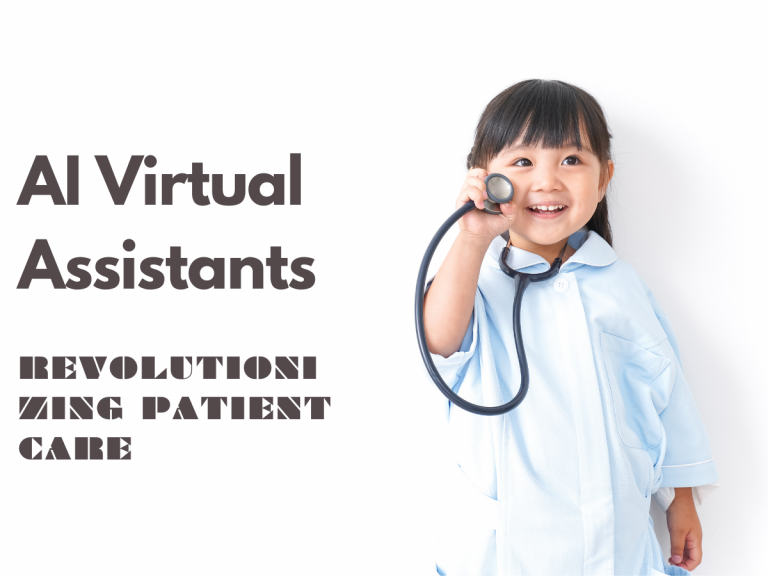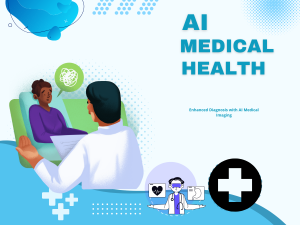1. Introduction
AI has the potential to greatly enhance healthcare by enabling faster and more accurate diagnosis, personalized treatment plans, and improved patient outcomes. However, as AI becomes increasingly integrated into healthcare systems, it is crucial to carefully consider the ethical implications associated with its use.
2. The Role of AI in Healthcare
AI encompasses a wide range of technologies, including machine learning, natural language processing, and computer vision, which can be applied in various healthcare domains. AI-powered systems can analyze vast amounts of medical data, detect patterns, and assist in decision-making processes, aiding healthcare professionals in providing better care.
3. Ensuring Patient Privacy and Data Security
One of the foremost ethical concerns in AI-driven healthcare is the protection of patient privacy and data security. As AI algorithms rely on patient data to learn and improve, it is essential to establish robust privacy frameworks and implement strict security measures to safeguard sensitive information.
4. Addressing Algorithmic Bias in AI Systems
AI algorithms can be susceptible to biases, reflecting the biases present in the data used for training. This raises concerns about fairness and equity in healthcare, as biased algorithms may lead to disparities in treatment and outcomes. It is crucial to identify and mitigate bias in AI systems to ensure equal access to healthcare for all individuals.
5. Transparency and Explainability in AI Algorithms
Another ethical consideration is the transparency and explainability of AI algorithms. Healthcare professionals and patients need to understand how AI systems arrive at their recommendations or decisions. Ensuring transparency helps build trust and allows for critical evaluation of AI outputs.
6. The Human-AI Relationship in Healthcare
The implications of AI in healthcare involve augmenting human capabilities instead of replacing healthcare professionals. Maintaining a balance between human judgment and AI assistance is essential for ethical and effective use. Collaboration and clear delineation of responsibilities between humans and AI systems have significant implications for healthcare.
7. Ethical Decision-Making in AI Applications
AI systems may encounter complex ethical dilemmas, such as end-of-life decisions or resource allocation. Establishing ethical guidelines and involving multidisciplinary teams in the development and deployment of AI applications can help address these challenges and ensure that decisions align with moral principles.
8. Ensuring Accountability and Responsibility
As AI systems become more autonomous, ensuring accountability and responsibility becomes crucial. It is important to establish clear lines of responsibility for the actions and decisions made by AI systems. This includes defining liability frameworks and mechanisms for addressing AI-related errors or failures.
9. Protecting Vulnerable Populations
Design AI in healthcare to address the specific needs of vulnerable populations, such as children, the elderly, and those with limited access to healthcare. We must take special care to prevent discrimination and ensure fair treatment and access to healthcare services.
10. Potential Benefits of AI in Healthcare Ethics
Despite the ethical concerns, AI also holds significant potential to improve healthcare ethics. It can enhance diagnostic accuracy, assist in identifying rare conditions, and support evidence-based decision-making. AI-powered systems can also help reduce medical errors and improve patient safety.
11. Challenges and Limitations
While AI brings promising advancements, it is important to acknowledge its limitations and challenges. AI algorithms rely on the data they are trained on, and if the data is incomplete or biased, it can lead to inaccurate or discriminatory outcomes. Additionally, technical limitations and algorithmic uncertainties may impact the reliability of AI systems.
12. Regulation and Governance
To address the ethical implications of AI in healthcare, robust regulatory frameworks and governance mechanisms are necessary. Government agencies, industry stakeholders, and healthcare professionals should collaborate to establish guidelines, standards, and policies that promote responsible and ethical use of AI in healthcare.
13. Ethical Guidelines for AI in Healthcare
Various organizations have proposed ethical guidelines for AI in healthcare. These guidelines emphasize transparency, fairness, privacy, and accountability. Adhering to these guidelines can help ensure that AI is used in a manner that benefits patients while upholding ethical principles.
14. Public Perception and Trust
Public perception and trust in AI systems play a crucial role in their acceptance and adoption. Open communication, education, and public engagement initiatives are necessary to foster trust and ensure that AI technologies are viewed as reliable and beneficial tools in healthcare.
15. Conclusion
The integration of AI in healthcare brings both opportunities and ethical challenges. Safeguarding patient privacy, addressing algorithmic bias, ensuring transparency, and maintaining a balanced human-AI relationship are essential for the responsible use of AI in healthcare. By navigating these ethical implications, we can harness the full potential of AI to enhance patient care and improve healthcare outcomes.
FAQs
Q1: Can AI completely replace human healthcare professionals? No, AI is designed to augment human capabilities in healthcare, not replace them. The human expertise and judgment are crucial in interpreting AI outputs and making informed decisions.
Q2: How can algorithmic bias be mitigated in AI healthcare systems? Mitigating algorithmic bias requires careful data collection, preprocessing, and validation. Regular audits and diverse training data can help identify and rectify biases in AI systems.
Q3: Are there any regulations governing the use of AI in healthcare? Yes, various countries and organizations are working on establishing regulations and guidelines to ensure the ethical and responsible use of AI in healthcare. These regulations aim to address privacy, security, transparency, and fairness concerns.
Q4: What are some potential benefits of using AI in healthcare ethics? AI can enhance diagnostic accuracy, support evidence-based decision-making, and reduce medical errors. It can also assist in identifying rare conditions and improve patient safety.
Q5: How can public trust in AI systems be fostered? Open communication, transparency, and public engagement initiatives are essential to foster trust in AI systems. Educating the public about the benefits and limitations of AI in healthcare can help dispel concerns and build confidence.













+ There are no comments
Add yours